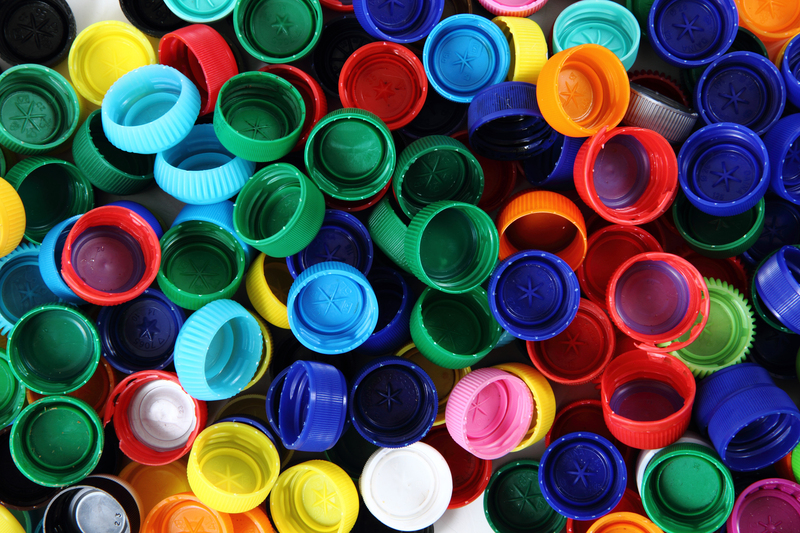Disposing of PPE Waste Responsibly in Public Spaces and Events
Introduction
The global outbreak of infectious diseases such as COVID-19 has brought about significant changes in public behavior, especially regarding the use of personal protective equipment (PPE), including face masks, gloves, gowns, and face shields. With billions of people utilizing PPE daily, the issue of responsible PPE waste disposal has become paramount, especially in public spaces and events. This comprehensive guide explores best practices, challenges, environmental impacts, and innovative solutions to ensure we all play a role in safeguarding both public health and the environment.

Understanding PPE Waste -- What Is It?
PPE waste encompasses all discarded protective equipment used to prevent exposure to infectious agents. Common examples include:
- Disposable face masks (surgical or filtering facepiece)
- Single-use gloves (latex, nitrile, vinyl)
- Plastic face shields
- Protective gowns or coveralls
The surge in use during pandemics and at large gatherings like concerts, sports games, and conferences, has led to an unprecedented increase in PPE litter, making its effective management a pressing issue.
The Environmental Impact of Irresponsible PPE Waste Disposal
Improperly discarded PPE often ends up in landfills, waterways, parks, and coastal areas. This not only poses significant health risks but also contributes dramatically to environmental pollution. Key negative impacts include:
- Marine life hazard: Masks and gloves entangle or are ingested by marine animals
- Microplastic pollution: Breaks down and enters the food chain
- Blocking drainage systems, leading to urban flooding
- Transmission of infectious agents to waste handlers and the general public
Staggering Statistics
Studies estimate that globally over 129 billion face masks and 65 billion gloves are used every month, with a sizable fraction improperly discarded. The result is a growing river of PPE waste in public realms, prompting urgent calls for responsible disposal.
Challenges in Managing PPE Waste at Public Spaces and Events
While awareness is growing, several challenges complicate the proper disposal of PPE waste in public areas and events:
- Lack of dedicated PPE waste bins
- Confusion between general waste and hazardous waste bins
- Limited knowledge about the health and environmental risks
- Sheer volume generated at crowded events
- Inconsistent public messaging and signage
Event organizers, municipalities, and individuals must therefore work collaboratively to implement effective strategies.
Best Practices for PPE Waste Disposal in Public Spaces and Events
1. Deploying Clearly Marked PPE Waste Bins
One of the most effective measures is the installation of dedicated PPE disposal stations throughout public spaces, such as parks, malls, stadiums, conference centers, and event venues. These bins should:
- Be labeled in multiple languages
- Feature clear graphics indicating accepted items (e.g., masks & gloves only)
- Be placed at key locations: entry/exit points, restrooms, food courts, and near seating areas
Installing high-visibility bins not only encourages proper behavior but also makes collection and subsequent processing safer and more efficient.
2. Educational Signage and Outreach
Public education is essential. Well-designed signs and digital displays at events can remind attendees to dispose of their PPE waste responsibly. Recommended approaches:
- Infographics--Simple visuals work across languages and literacy levels
- QR codes linking to disposal guidelines
- Regular audio announcements during events
3. Frequent Waste Collection and Safe Handling
PPE bins must be emptied frequently to prevent overflow and the risk of contamination. Waste handlers should always use:
- Appropriate PPE when collecting and transporting PPE waste
- Sealable, leak-proof bags to minimize contact
- Disinfectant sprays or wipes for containers
4. Cooperation with Certified Waste Managers
Cities and event coordinators should partner with licensed hazardous waste firms who are trained in the safe and compliant disposal of used PPE. These experts are equipped to:
- Transport PPE waste securely
- Incinerate or treat it per regulatory standards
- Support waste tracking and reporting
5. Encourage the Use of Reusable PPE Where Feasible
At certain events, especially those with shorter durations or controlled access, offering or incentivizing reusable face coverings or shields reduces the volume of single-use PPE waste generated.
6. Promote Personal Responsibility
Encouraging individuals to carry small, sealable bags for temporarily storing their used PPE can bridge the gap when dedicated bins are unavailable. Public campaigns can stress the importance of not littering and proper hand hygiene after disposal.
Legal and Regulatory Frameworks
Various countries and local jurisdictions have enacted rules regarding the
disposal of PPE waste in public places and during mass gatherings. Authorities may require event organizers to:
- Develop a PPE waste management plan
- Keep records of PPE waste generated and disposed
- Provide PPE bins and proper signage
- Comply with occupational health and safety protocols
Failure to comply can result in fines and reputational risks. It is essential to stay informed about the latest legal requirements in your area.
Innovative Solutions to PPE Waste Management
Biodegradable and Compostable PPE
Researchers and manufacturers are developing masks, gloves, and other PPE made from plant-based or biodegradable materials. These alternatives:
- Reduce plastic pollution
- Break down safely in composting environments
- Are suitable for single-event distribution
While not yet widely available in all markets, adopting green PPE is a step toward sustainable event management.
PPE Recycling Initiatives
Some companies specialize in PPE recycling programs tailored for public spaces and events. These programs collect used PPE and process it into:
- Plastic lumber for park benches or decking
- Building insulation materials
- Energy through clean incineration
Event managers can partner with such organizations to boost their sustainability credentials.
Digital Waste Tracking
Integrating IoT sensors in PPE bins allows real-time monitoring of fill levels, reducing labor costs and improving hygiene. Digital tracking also provides valuable data for reporting and planning at large events.
Case Studies: Responsible PPE Disposal in Action
London Marathon
In 2022, the London Marathon implemented specialized PPE bins with color coding and clear signage along the race route, coupled with volunteer-led information booths. Over 94% of PPE waste was collected and processed according to best safety and environmental standards.
Music Festivals in Australia
Selected music festivals mandated reusable masks for attendees and provided return stations for those used onsite. With proactive education on-site and online, PPE litter dropped by over 70% compared to previous years.
US Public Transport
Several major US cities partnered with recycling firms to place sealed PPE recycling containers at transit hubs. Monthly reports showed high compliance among commuters and decreased sidewalk litter.
Tips for Individuals: Doing Your Part
- Always look for and use dedicated PPE bins.
- Carry a sealable bag for storing used PPE when in doubt.
- Never throw used PPE into recycling unless specified--it contaminates other materials.
- After handling used PPE, immediately clean your hands with sanitizer or soap.
- Educate family and friends about responsible PPE waste disposal.
Role of Event Organizers and Local Authorities
Successful PPE waste management at public events is a partnership. Organizers and officials should:
- Include PPE waste logistics in event planning from the outset
- Communicate clearly with staff and attendees through multiple channels
- Monitor compliance and adjust strategies as needed
- Report and analyze data to inform future improvements
Proactivity beats reactivity: anticipate issues before they arise.
Conclusion
The responsible disposal of PPE waste in public spaces and at events is not just a public health issue, but also an environmental imperative. With collective action--dedicated bins, public education, innovative solutions, and regulatory compliance--we can minimize the impact of PPE waste on our streets, parks, waterways, and wildlife.
Whether you are an event organizer, city manager, or a concerned citizen, your role is critical in promoting safe and sustainable PPE waste disposal. Let's commit to safeguarding our communities and planet for future generations.

Frequently Asked Questions (FAQ)
- Can I recycle my disposable masks or gloves?
Most disposable PPE cannot be recycled in standard curbside programs. Use dedicated bins provided, or municipal hazardous waste collection points. - What risks are associated with improper PPE disposal?
Improperly discarded PPE can spread infectious diseases, harm animals, pollute the environment, and block drainage systems. - Are biodegradable PPE solutions as effective?
Many biodegradable or compostable PPE products now meet similar safety standards as traditional versions. Check for regulatory approvals before using at events.
Further Reading and Resources
- WHO: Proper Protection and Disposal of PPE
- US EPA Guidance on COVID-19 Waste
- Nature: The Environmental Toll of COVID-19 PPE
Remember: Every action counts when it comes to disposing of PPE waste responsibly in public spaces and events. Let's build a cleaner, safer future together!
